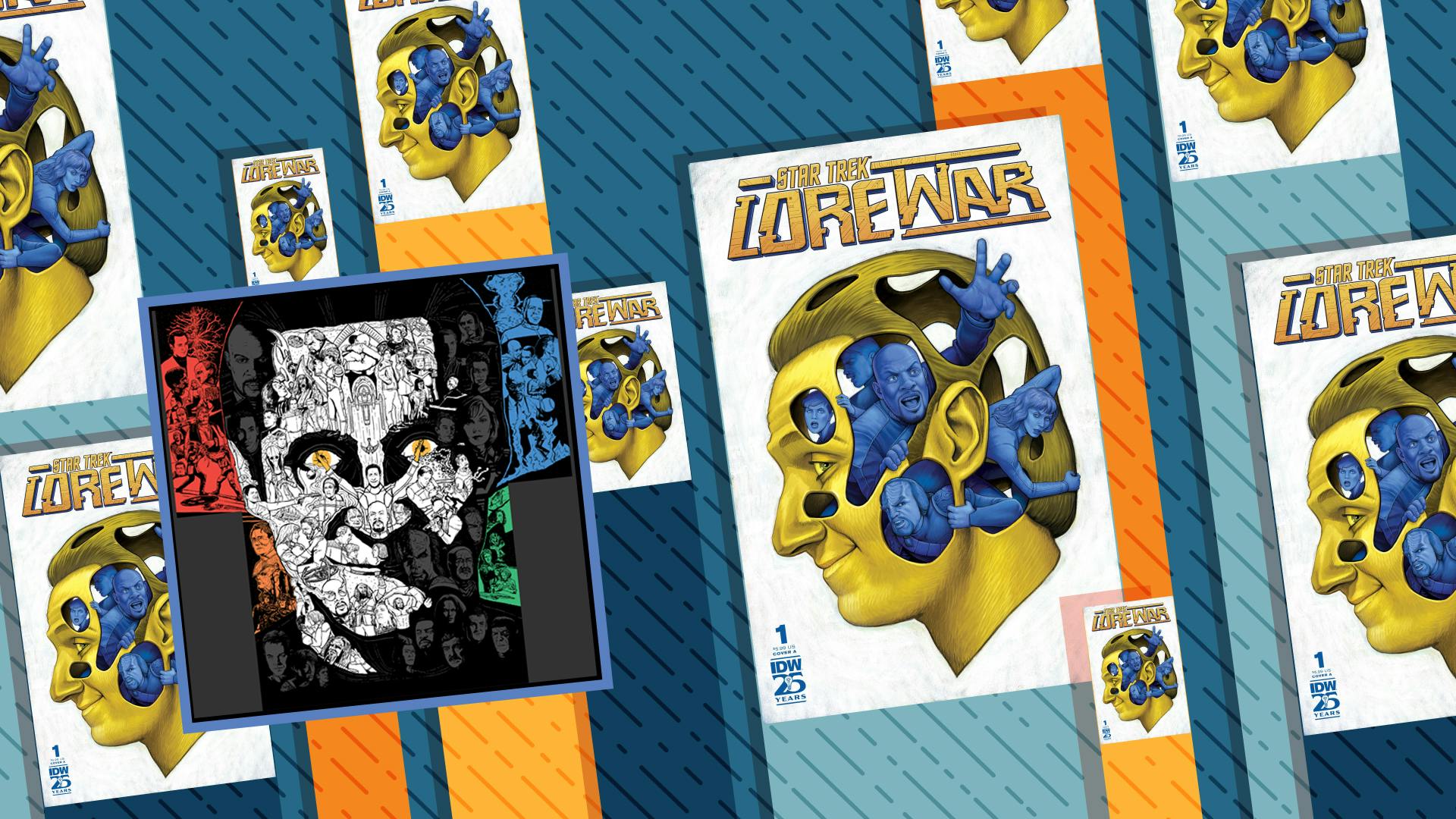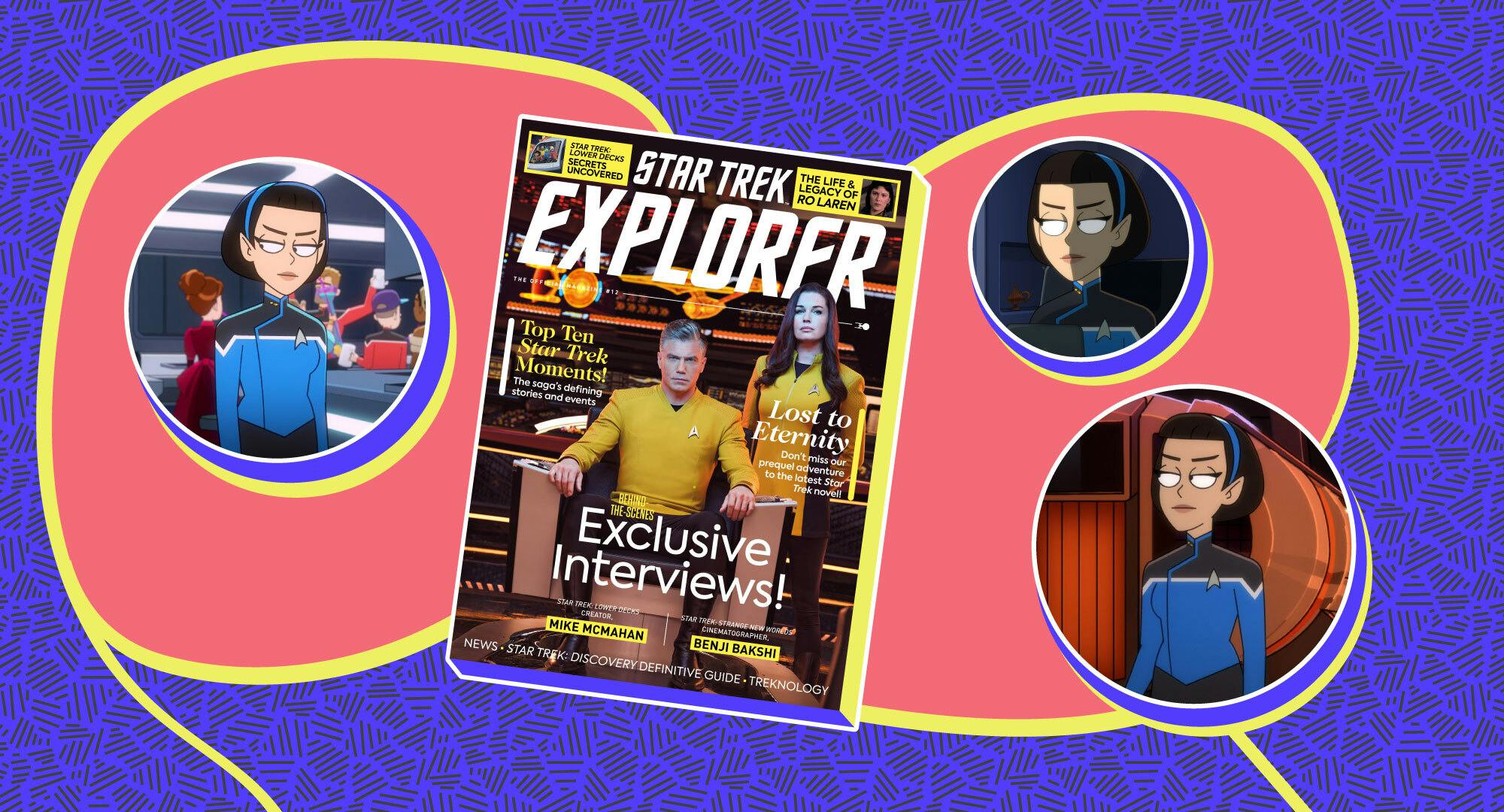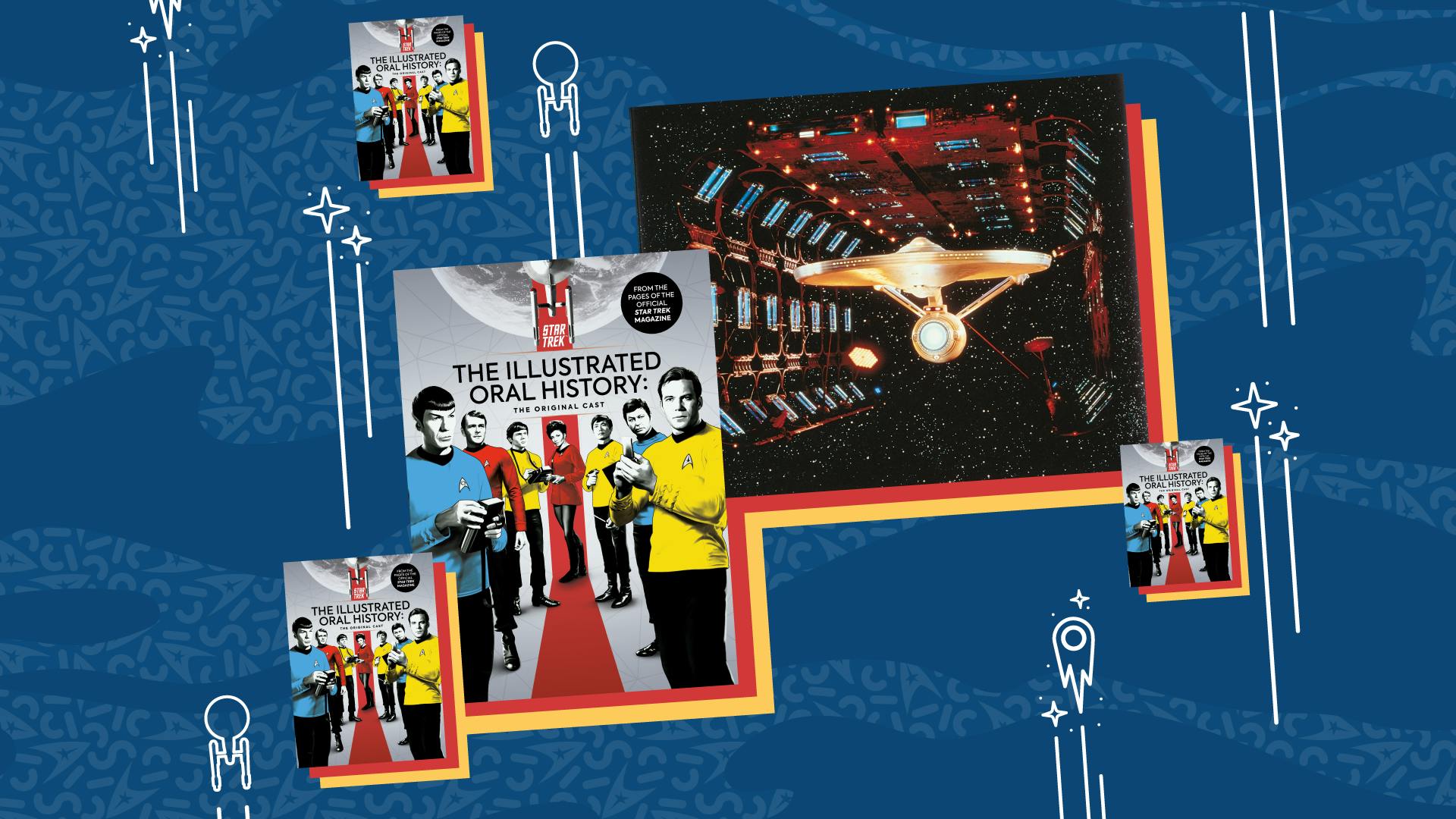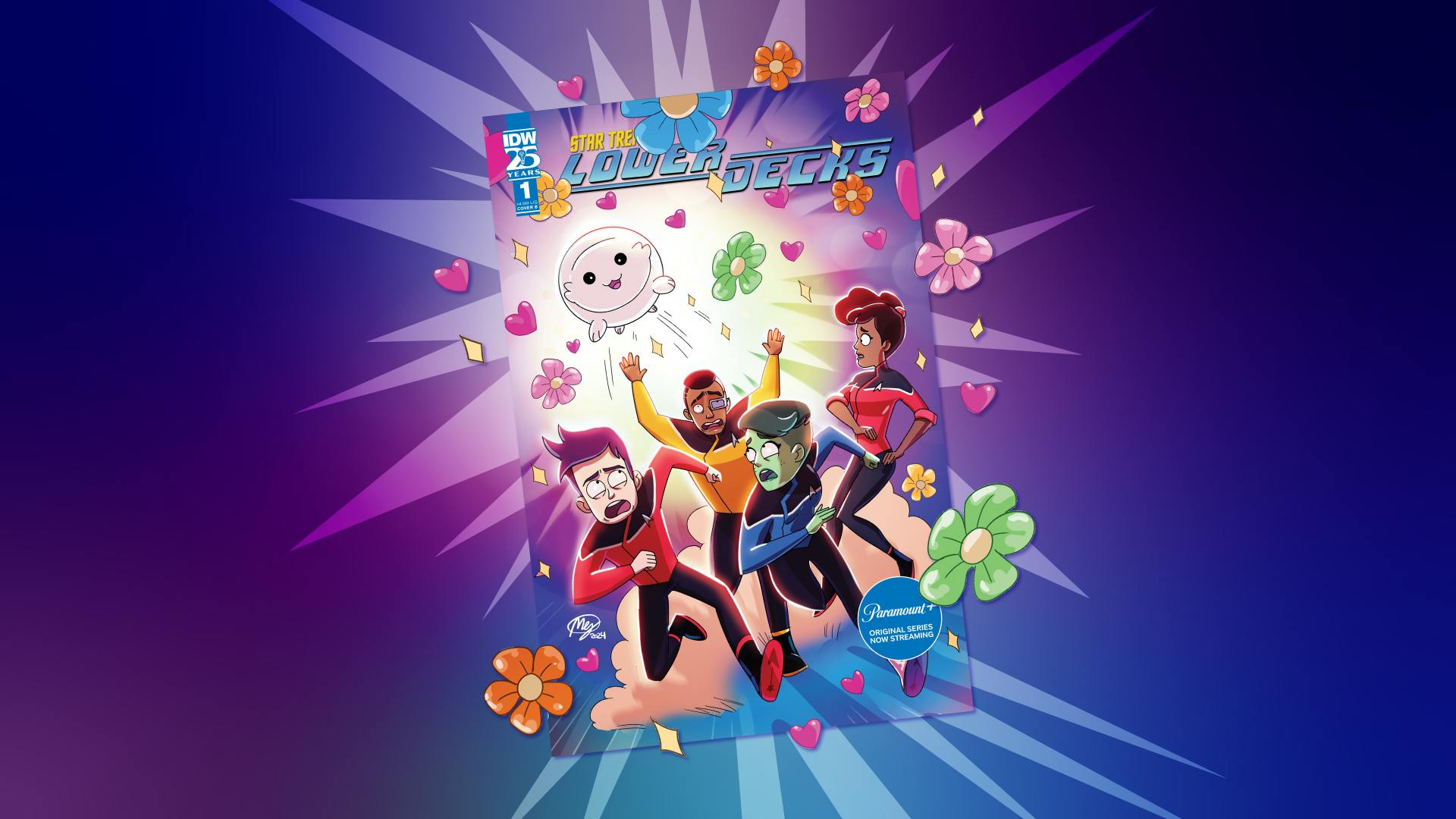Published Nov 28, 2022
Strange New Worlds' Bruce Horak on Hemmer's Noble Sacrifice in Star Trek Explorer #5
Read an excerpt before the magazine hits stands on November 29!
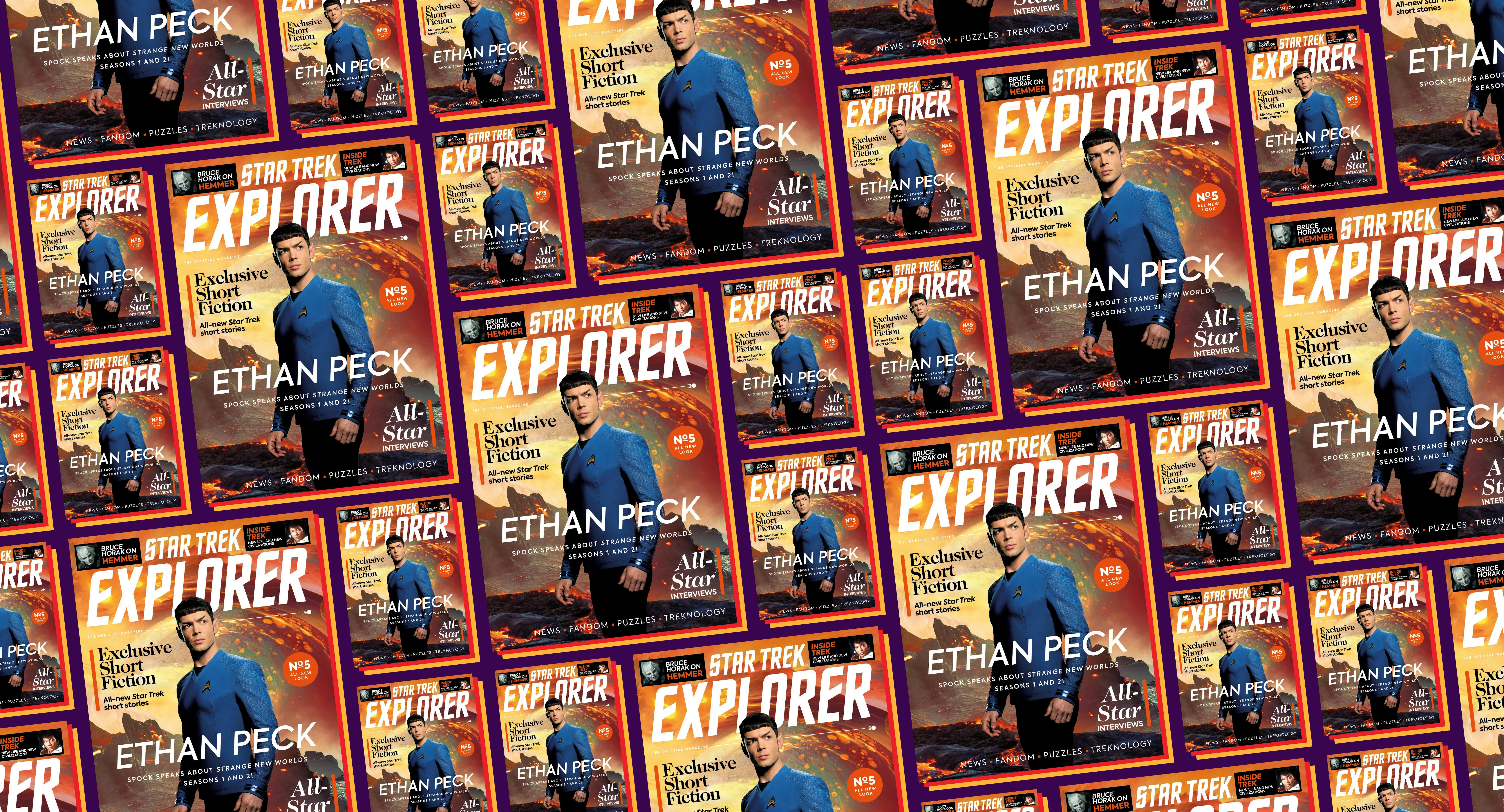
StarTrek.com
With tomorrow's release of Star Trek Explorer #5, we pay tribute to the late Nichelle Nichols. Today it’s hard to imagine the impact that the multi-racial cast of Star Trek had on television viewers when it first aired, but it certainly did; Nichols role as Lieutenant Uhura groundbreaking in so many ways, is remarked on by several paying tribute within this issue.
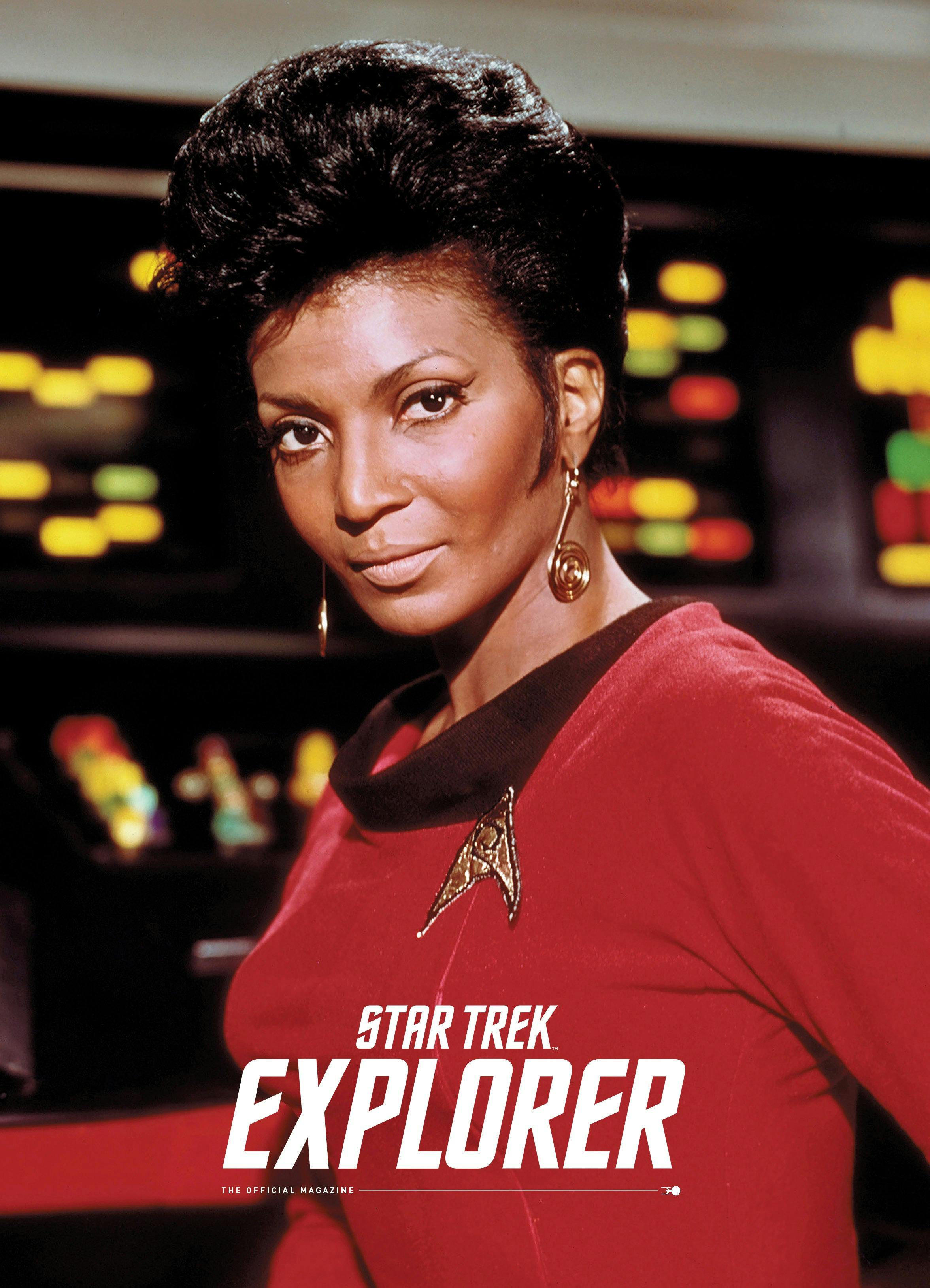
Titan
Within the pages of #5 you’ll also find exclusive interviews with Star Trek: Strange New Worlds’ Ethan Peck and Bruce Horak, where the former reflects on how immersing himself as Spock changed him, while the latter shares his experience as the Aenar engineer Hemmer. There are two all-new Star Trek short stories, a look on how Trek spacesuits have kept in step with real world design, and so much more! Star Trek Explorer #5 is on sale Tuesday, November 29. You can grab a copy at your preferred retailer, or pick up a subscription (US/CAN, UK/Ireland, World, Digital) for yourself or to gift!
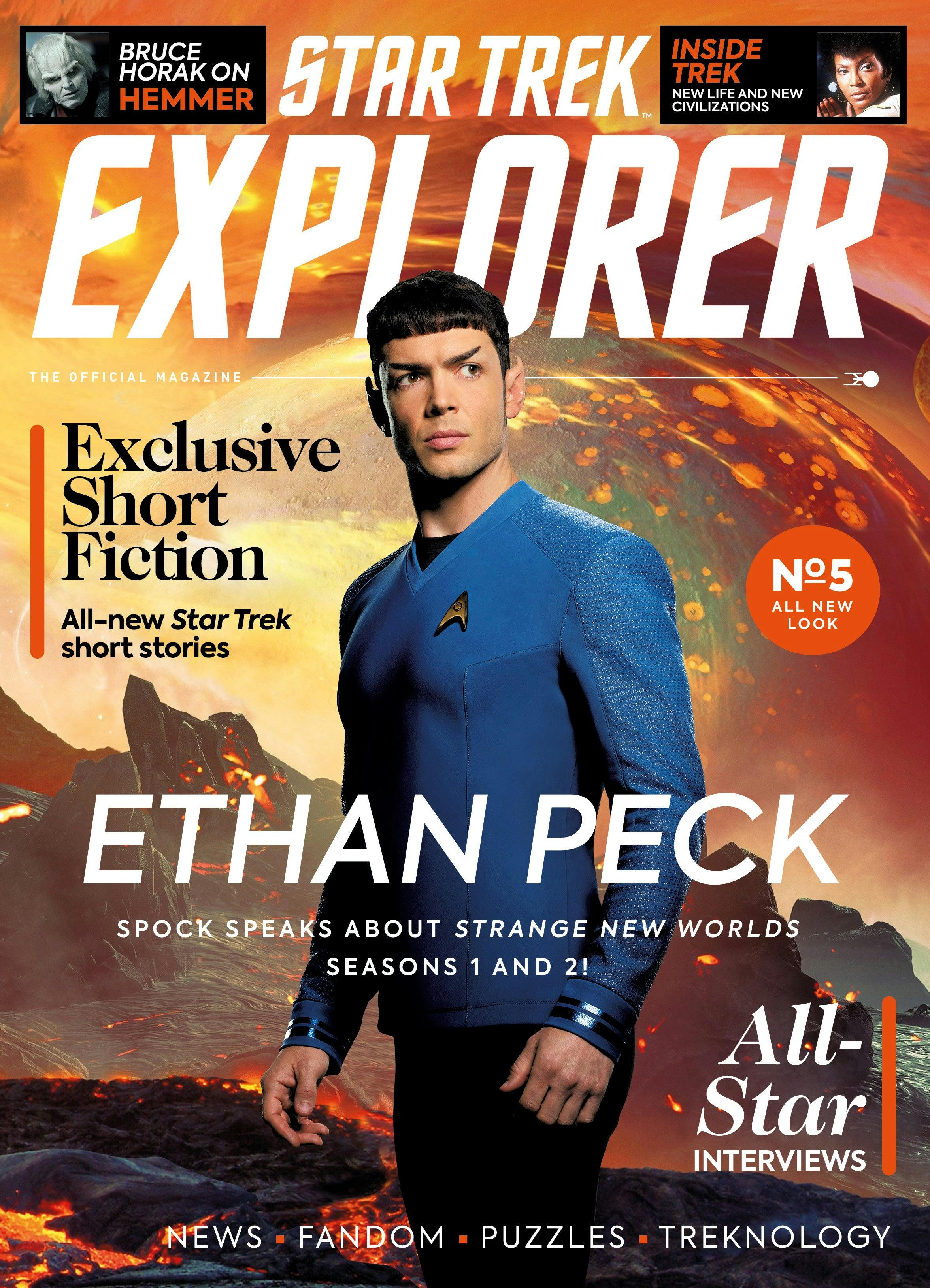
Titan
Thanks to our friends at Titan Magazines, we have an exclusive excerpt with Bruce Hemmer below!
Bruce Horak is more than an actor. He bills himself as a “Visually Impaired Performer Creator,” which encompasses acting on stage and in television and films, writing plays, composing music, and painting portraits. And he does all of this despite having lost 91 percent of his vision due to cancer when he was a toddler. Star Trek Explorer chatted with Horak about Hemmer’s highlights and demise, the reaction he’s gotten from fans, what comes next in his career, and more.
STAR TREK EXPLORER: What made you want to pursue performing?
Bruce Hemmer: I was a class clown. I was in elementary school, goofing around in class. That was when it hit me. Also, I have a very artistic family. My dad was a high school English and drama teacher. My mom is a writer, painter, and singer. I have three older brothers who are artistically inclined. It’s always been in the blood. I saw a play when I was in elementary school. They set up in the gymnasium, this company in Calgary called Quest Theater, which tours children’s shows. I thought, “That’s what I want to do. I want to tell stories. I want to perform.” Years later, I went to theater school, met the artistic director of Quest Theater, and we hit it off. I became a writer and a performer.
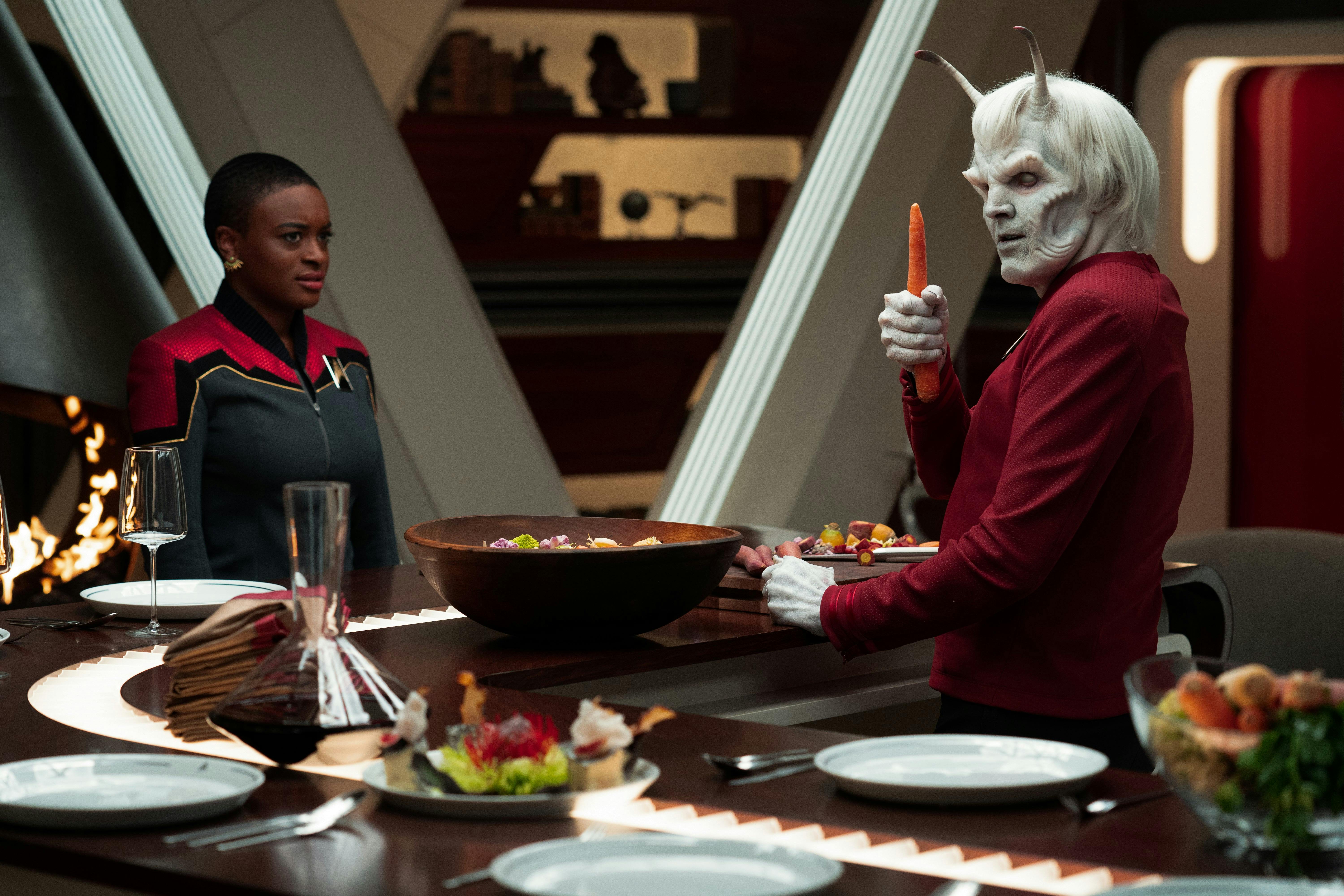
StarTrek.com
STAR TREK EXPLORER: How familiar were you with Trek?
Bruce Hemmer: My whole family gathered on Sunday nights and watched TOS reruns. When Next Generation came out, my dad had just retired. We watched it. My dad was a science-fiction nerd, so it was mandatory.
STAR TREK EXPLORER: How did Strange New Worlds come your way?
Bruce Hemmer: My manager sent me the sides. Casting was looking for a blind or visually impaired performer, so I fit that requirement. When I found out it was an Aenar, I re-watched Enterprise. I dug into that first scene. The original sides were for the scene where Uhura and Hemmer meet. I believe I did three, maybe four Zoom auditions. After the last audition, I chatted with [Executive Producer] Henry Alonso Myers. We talked about the character and he told me, right off the bat, that he’s going to be a mentor to Uhura, going to be blind but exceptional, and going to sacrifice himself. I knew early that Hemmer was an Obi-Wan Kenobi character if you will.
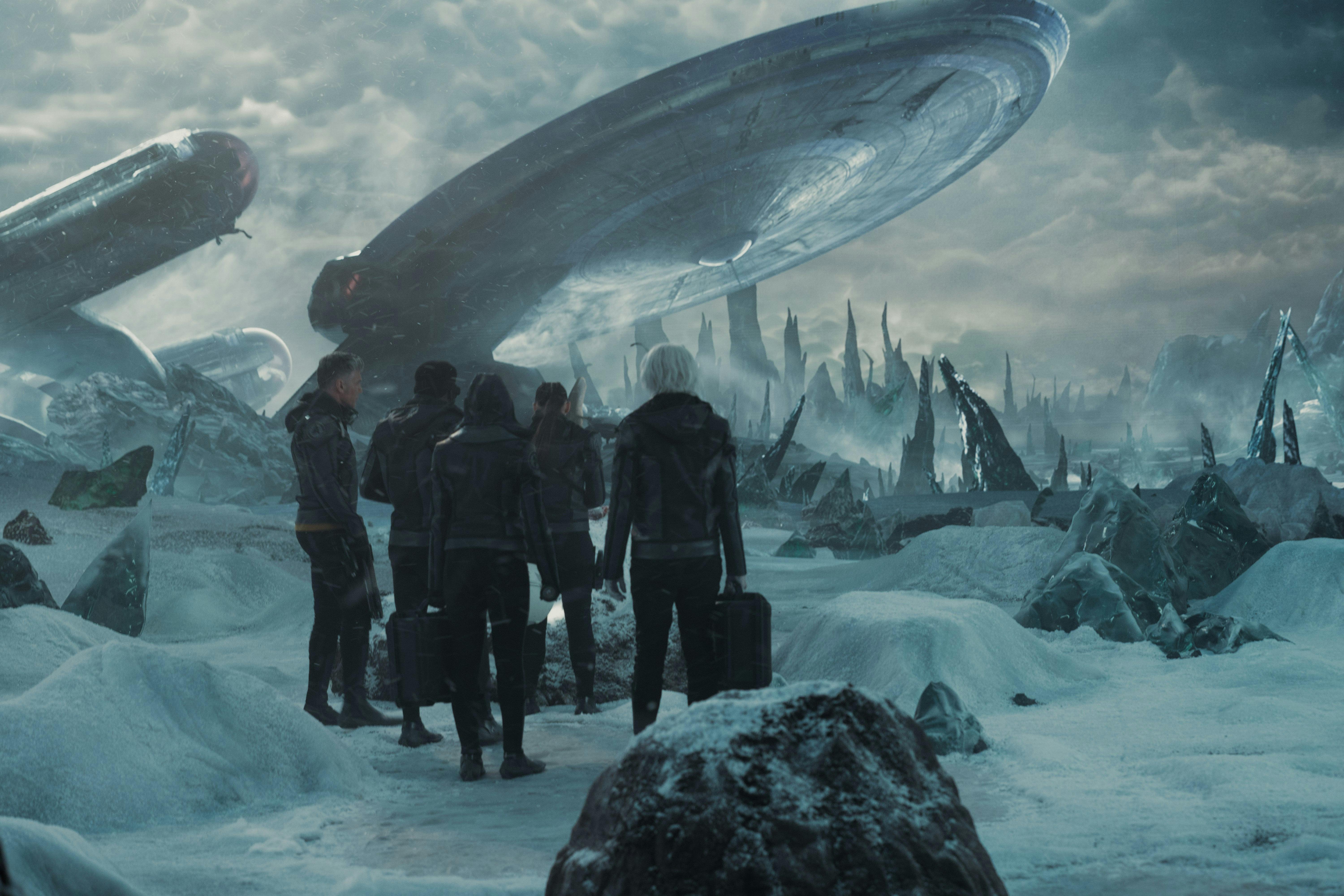
StarTrek.com
I had no idea all the way through the first season what the sacrifice would look like. When I read the script, I was excited. I knew he was going to go, and I just wanted it to be cool and meaningful. He steps up and does this incredibly noble thing to save his friends. It was heartbreaking because, obviously, I wanted Hemmer to live forever, but let’s make room for the next engineer!
STAR TREK EXPLORER: Hemmer was great at his job, and he knew it. He didn’t want anyone’s help, or pity. How much did you relate to him?
Bruce Hemmer: Growing up with a disability meant running twice as fast just to stay in the middle of the pack a lot of the time. I was told at a young age, “This is a sighted world. It’s up to you to adapt.” That often meant relying on help, but also finding a way to be autonomous. That became a mantra of mine, and it still is. I like the feeling that I can get up and say, “I need to do these things.” I totally relate to Hemmer, in terms of not wanting anybody’s pity. When I walk around with my cane, I can sense that “Gosh, look at that poor man” reaction and it directly correlates to the sense of autonomy. “If I can do this thing myself, if I can perform the task that’s required of me as a human being on this planet, then I’ll shatter those feelings of pity because I’m competent and capable.”
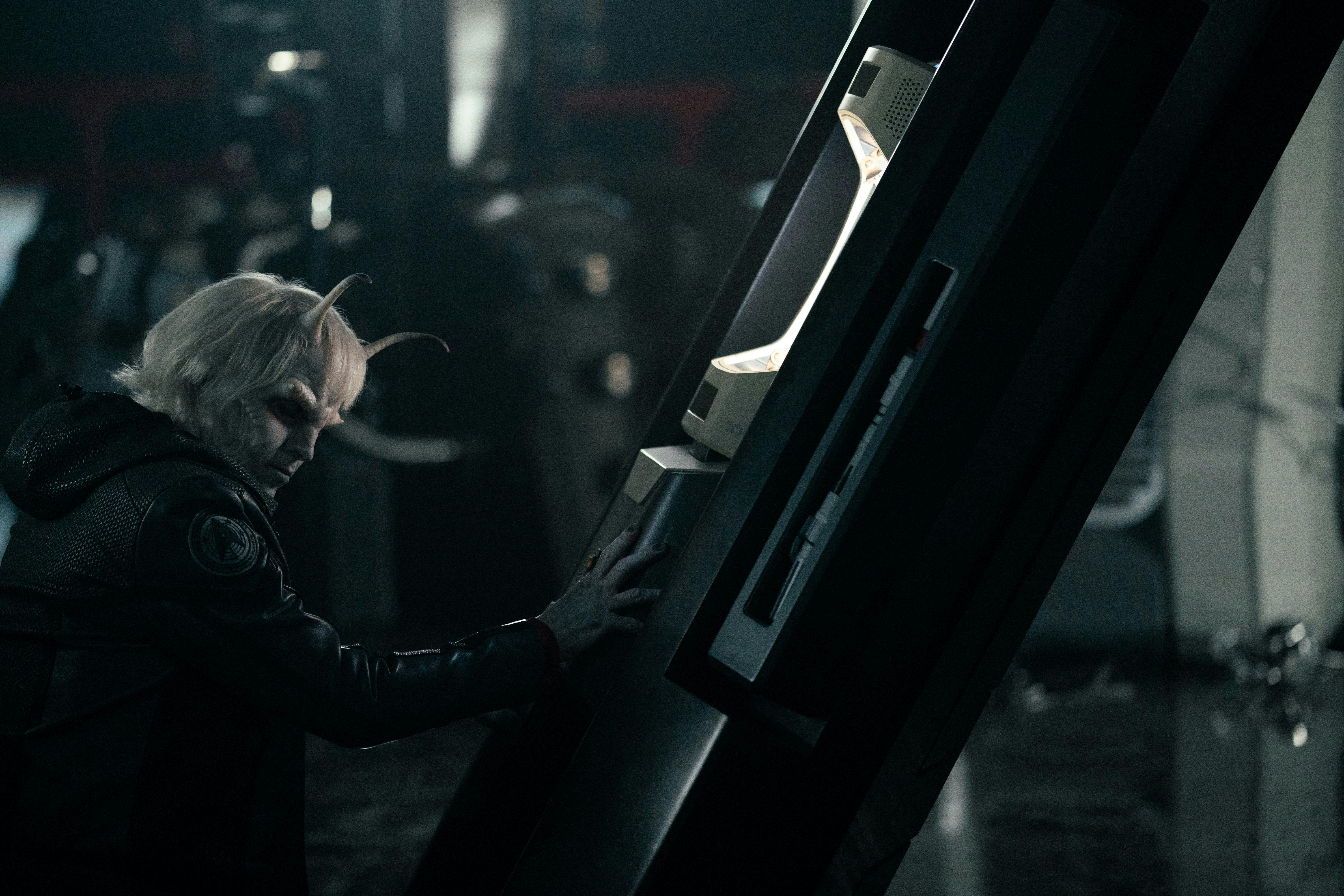
StarTrek.com
